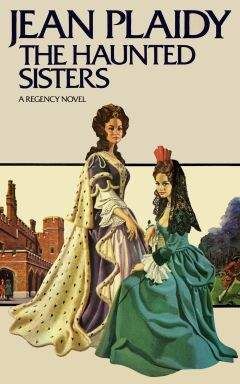Charles laughed and gently touched her cheek. “These Tudors have a way of forgetting what they owe their rank when they take a fancy to some low man or woman.”
“We were quite different.”
“Oh no, my love. And it seems that Henry is as determined to have this girl as you were to marry me.”
“Then … God help Katharine!” cried Mary. She clung to Charles. “Charles, have a care.”
“You may trust me.”
“Remember how precious you are to us all.”
“I will never forget, my love,” he answered.
So Charles went to London.
She was restless; she could not sleep; and when she did she would awake startled, her body bathed in cold sweat.
She had grown thinner and paler, more thoughtful, nervous, ready to be startled by a sudden sound.
One morning she awoke in great distress. If Henry could declare his marriage to Katharine invalid, because of Katharine’s previous marriage with his brother Arthur, what of Charles’s marriage to Lady Mortymer? She was still living. What if she herself were to die and her children be declared illegitimate?
She could not rest. There must be a dispensation from the Pope. She must make sure that her children were safe, when she was no longer there to protect them.
The case of the King versus the Queen of England dragged on, but Mary had no difficulty in receiving a confirmation of her marriage to Charles Brandon from the Papal Court.
When she knew that she had succeeded, Mary wept with happiness; and suddenly remembered that for the first time in her life she had thought of herself … dead.
That moment seemed significant, for in it she knew that each day she could spend with her children and husband would be even more precious, that she must live each one as though it might be the last.
She was her gay self and refused to be alarmed even when the people of Suffolk rose against the Duke. Henry, who was in need of money, had levied taxes which he commanded Charles to collect on his behalf, at which the people had risen and threatened Charles’s life. But Mary knew that Charles would know how to handle the people. And she was right; by good fortune and gentle persuasion he quelled the rising; in this he was helped by their immediate neighbors who had benefited from their residence at Westhorpe and the other Suffolk manors and were ready to defend them against those who did not know them so well. Mary had once more been obliged to lay the facts before her brother and plead for clemency; and at her request Henry decided he would not demand the tax and would pardon those who had risen against her husband, who was acting as his representative.
That danger had passed and Mary was determined that the troubles which had been set in motion by the King’s desire to rid himself of Katharine should not come to Westhorpe.
But it was impossible to hold them back. As well try to hold back the sea … or death.
Death? She thought of it now and then. Sometimes she fancied it was like a gray shadow at her elbow; and her great desire was that none should recognize it but herself.
She would not go to Court, and Henry did not insist. He did not need his sister to amuse him now. He had one far more amusing, far more beautiful, one whom he was determined to make his Queen.
“I’ll not go to Court,” declared Mary, “and take second place to my maid of honor. I can see her now, sitting on her little stool, staring into the future with those great brooding witch’s eyes.”
But it was not Anne Boleyn who kept her from the Court, so much as her own failing strength.
She would not be able to keep her secret much longer.
Only yesterday Frances had said to her: “Mother, are you ill?”
That was when they were in the garden and she had felt faint.
She had roused herself. “Nay, my love. I was falling asleep.”
It was easy to deceive a child; not so easy to fool Charles. There were times when she saw his brow furrowed as though with fear.
“My love,” said Charles, “a summons.”
“To Court?”
“Henry is taking Anne to Calais. He wants the approval of François for his marriage.”
“And he asks us to go?”
“He feels it is necessary to have us with him.”
She closed her eyes. How could she endure the crossing, the masques, the banquets? She felt dizzy at the thought.
“I shall not go,” she said.
Charles took her by the shoulders. “You do not deceive me, my dearest,” he said. “You are ill.”
“I am well enough, Charles. It is merely that I grow old.”
“Think how much older I am!”
“But you are as a god, Charles. You are immortal.”
“Do not suggest that I should go on living without you.”
She threw herself against him that he might not see the tears in her eyes.
“I’ll not go to Court, Charles. I’ll not take second place to Henry’s concubine. Why, if I went I should show my hatred of her. They say he grants her every wish. You must not make an enemy of her.”
“Mary,” he said, “I shall make your excuses to Henry. And while I am gone you must be the invalid. You must see the physicians.”
She nodded. She knew she could not much longer go on playing her game of make-believe.
The hot June sun shone on the rose garden of Westhorpe, and as Mary sat by the pond watching the fishes, she could hear the shouts of the children at play.
What happiness I have known, she thought, here in this house … in this garden. The children are growing up now. They will not need me as they did. And Charles? Where was he now? On the way to Calais? Was he paying homage to the Concubine? Oh, Charles, be careful.
He would be careful for her sake … as she would be for his. He had learned to love as she loved; and this garden, this house, was encircled by their love.
God keep them all, she prayed. And if in mourning me they should be sad, then teach them not to mourn.
She closed her eyes and when the children came running into the garden they thought she was asleep.
Charles came into the room as she lay in her bed.
“Charles,” she whispered.
He was kneeling by the bed. “My beloved.”
“So you came back … ?”
“As soon as I heard that you needed me.”
“I needed you, did I not? Oh, how I needed you!”
“Mary. …”
“Oh, Charles, you are weeping.”
“Stay, Mary. Do not leave me. We cannot be apart … you and I. You always said it.”
“This had to come, Charles. Take care of my little ones.”
“You cannot leave us.”
She shook her head and smiled at him.
“Charles, do you remember the chapel at Clugny?”
“For as long as I live I shall remember.”
“Do you remember how I told you that there would be no regretting … as long as we two should live?”
“I remember.”
“Charles, kiss me … for the last time, kiss me.”
He did so.
“There are no regrets, my love,” she said.
He stood up and stared disbelievingly down at her. He could not believe that the vital, beautiful Mary Tudor had left him forever.
BIBLIOGRAPHY
Aubrey, William Hickman Smith, The National and Domestic History of England
Batiffol, Louis (translated by Elsie Finnimore Buckley), National History of France
Chamberlin, Frederick, The Private Character of Henry the Eighth
Fisher, H.A.L., The Political History of England (1485–1587)
Froude, James Anthony, History of England
Gairdner, James (editor), Memorials of Henry VII
Green, Mary Anne Everett, Lives of the Princesses of England
———, Letters of Royal and Illustrious Ladies of Great Britain
Guizot, M. (translated by Robert Black), History of France
Hackett, Francis, Henry the Eighth
———, Francis the First
Herbert, Edward, Lord, History of England under Henry VIII
Hudson, Henry William, France
Jackson, Catherine Charlotte, Lady, The Court of France in the 16th Century
Salzman, L. F., England in Tudor Times
Stephens, Sir Leslie, and Sir Sidney Lee (editors), The Dictionary of National Biography
Strickland, Agnes, Lives of the Queens of England
Wade, John, British History
ABOUT THE AUTHOR
JEAN PLAIDY is the pen name of the late English author E. A. Hibbert, who also wrote under the names Philippa Carr and Victoria Holt. Born in London in 1906, Hibbert began writing in 1947 and eventually published over two hundred novels under her three pseudonyms. The Jean Plaidy books—ninety in all—are works of historical fiction about the famous and infamous women of English and European history, from medieval times to the Victorian era. Hibbert died in 1993.
Questions for Discussion
1 Mary and Henry maintain a subtle balance of power between them. Although Henry has the last word by virtue of being king, Mary has enormous emotional sway over him. Where do you see Mary affecting Henry’s decisions or intervening to calm situations that would otherwise prove disastrous? When does Henry first offer a glimpse of just how dangerous his temper can be, even with Mary?
2 Henry is so eager to become king that he joyfully anticipates his own father’s death: “Every direction in which he turned he found adulation, and very soon—it could not be long because the old man was coughing and spitting blood regularly now—he would be the King of this country.” And as Mary contemplates her brother Arthur’s death, she muses, “perhaps it was all for the best … for Henry was surely meant to be King.” Are Henry and Mary vultures or pragmatists? Do you think their attitude is a necessary product of life in the English court, or are they particularly cold-hearted?
3 Mary’s arrival in France as wife to Louis is a hard blow to “the trinity” of François, Marguerite, and Louise. Yet, ironically, it is François who is chosen by the king to greet Mary when she first arrives. How does this first meeting go? Does François have a soft streak, or is he a consummate actor? Mary asks herself, “What was it he was attempting to offer? Commiseration? Consolation?” What is the answer?
4 Early in his rule, Henry faces a series of setbacks. The death of a newborn son, a mutiny by English soldiers in France, and the treacherous teaming-up of Ferdinand of Spain and the Emperor Maximilian, all send Henry into his first serious slump. What changes do you notice in Henry from this point on? How do they affect his rule, and how do they impact Mary’s plans? How does his wife, Queen Katherine, accidentally add insult to injury?
5 The friendship between Charles Brandon and Henry is a vehicle for the most intense dramatic tension in the novel. What method does Charles find most effective for stroking the king’s ego and keeping him happy? Charles recognizes “a certain primness in Henry’s character”; what does he mean by this?
6 Why does Pope Alexander agree to dissolve Louis XII’s marriage to Queen Jeanne? What is in it for him?
7 Despite Charles Brandon’s passionate love for Mary, he seems to be quite content to adapt into whichever romantic union happens to come along. He is betrothed and then un-betrothed to Anne Browne, married to Margaret Mortymer, married to Anne Browne, betrothed to Elizabeth Grey, and comes very close to becoming betrothed to Margaret of Savoy. He is enthused at the beginning of each relationship, seeing it as a new lease on life, but soon becomes apathetic. What do you make of Charles? Is he fickle or just searching for true love? What makes the relationship with Mary stick?
8 From his cushy position as political prisoner in Henry’s court, the Duc de Longueville writes to Louis in France, describing Mary in glowing terms and reporting Henry’s deep love for her. What is the significance of this letter? What mischief is Longueville attempting to stir up? Does he succeed? Why does he find Henry’s court “so interesting and amusing to watch”?
9 Louise is tormented by the idea of Mary getting pregnant with the King’s child. Since she knows that Mary is desperately unhappy in the marriage, why doesn’t she encourage Mary to take a lover, thus creating a possibility that Mary will be discovered and ousted from the French court? What does Louise fear might happen?
10 What do you make of King Louis? He can see both the wild flirtation that goes on between Mary and François and the blatant love that Mary harbors for Charles Brandon. And yet, while it would be in keeping with the times to have her arrested for treason, he quietly suffers Mary’s indifference. He goes so far as to muse, “My poor little one … it is time I was dead.” Is he naïve, kind, self-loathing? What events in his life have led him to this point?
11 When Mary leaves France, she tells Marguerite that “she would always remember their friendship with pleasure,” despite the fact that Marguerite has spent most of Mary’s reign as queen trying to get rid of her. Is this Mary’s version of diplomacy? Has she recognized and sympathized with the trinity’s ambitions? Where else do you see Mary smoothing feathers, politically and personally?
12 A theme of silencing runs throughout the novel. In various ways, Henry silences Mary, Louis silences Jeanne, Mary silences Anne Boleyn, etc. Where else do you see this theme at work?
13 François’s first love is the devout, mysterious Françoise. Who is she? Why does she reject him? This is the first refusal François has ever experienced in his gilded life; how does he take it? Who suggests that he simply abduct and seduce Françoise against her will?
14 Men may rule France, but there is fierce competition among the women behind the scenes as they struggle to put their chosen men on the throne. Louise and Anne of Brittany blatantly wish death upon each other’s children as they jockey for position. Is there any female solidarity to be had in this novel? Where do you see the men picking up on this female competition and using it to their advantage? Which female character do you find most sympathetic?





